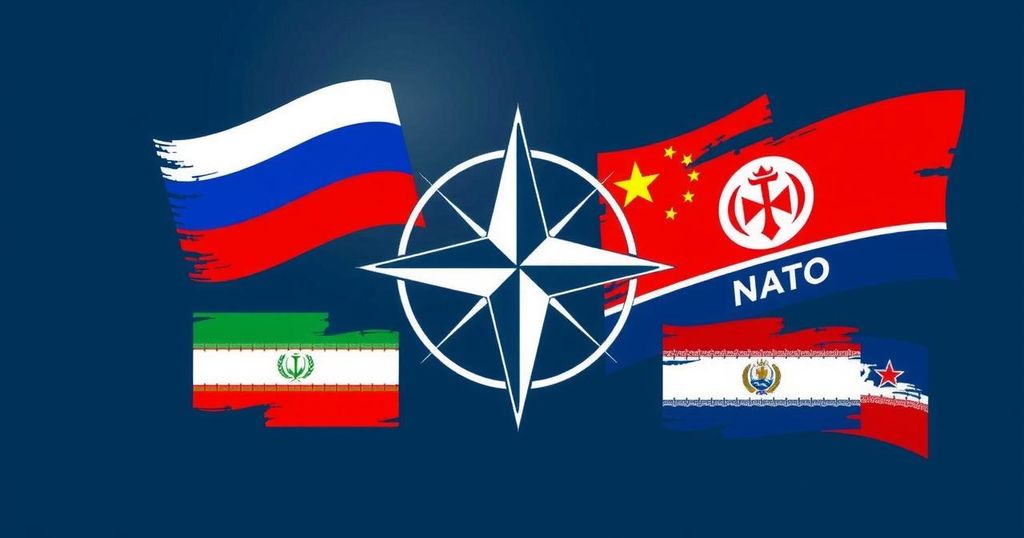NATO Chief Mark Rutte warns that Russia’s collaboration with China, North Korea, and Iran threatens global security, especially for Europe and North America. He emphasizes the necessity of continuing military support for Ukraine to counter Russian aggression, amidst concerns over the future U.S. administration’s commitment to aid Ukraine in its conflict with Russia.
NATO Secretary General Mark Rutte has expressed serious concerns regarding the expanding military and economic partnerships between Russia and nations such as China, North Korea, and Iran. Speaking in Paris, he emphasized that such alliances pose significant threats not only to Europe but also to the security of the Indo-Pacific region and North America. Rutte underscored the necessity for transatlantic unity and voiced his support for Ukraine amid its ongoing conflict with Russia, highlighting the need for additional military assistance to deter Russian aggression. Rutte noted that while China bolsters Russia’s economy and contributes to its defense capabilities, military support from North Korea and Iran simultaneously enhances Russia’s threat level. This cooperation, according to Rutte, is detrimental to global peace and security. As Russia continues to advance in Ukraine, concerns within the international community mount regarding the commitment of the future U.S. administration under President-elect Donald Trump to supporting Ukraine, especially in light of Trump’s previous criticism of Western aid to Kyiv. Efforts are ongoing in Kyiv to strengthen the nation’s position in any forthcoming negotiations. A significant focus for Ukraine is to secure further military resources while continuing its resistance on the battlefield. Rutte urged a renewed commitment to the support for Ukraine, stressing that failure to increase the costs for President Vladimir Putin could jeopardize the conflict’s outcome. French President Emmanuel Macron reiterated his pledge to continue sending aid to Ukraine, stating that all decisions regarding Ukraine must involve Ukrainian voices alongside European perspectives.
The article addresses the ongoing geopolitical tension between NATO and Russian-aligned nations, emphasizing the importance of international cooperation in addressing military threats. NATO’s focus on alliances, particularly between Russia and countries with authoritarian regimes like North Korea and Iran, highlights the broader implications for global security. The context of a new U.S. administration and its potential policies regarding support for Ukraine are crucial to understanding the transatlantic relationship and its strategic considerations. This situation reflects a shifting geopolitical landscape that demands agile and decisive diplomatic and military responses.
In conclusion, NATO’s Secretary General Mark Rutte has articulated the critical risks posed by Russia’s alliances with China, North Korea, and Iran, stressing the need for unified efforts to bolster Ukraine against ongoing aggression. The evolving geopolitical environment necessitates clear and sustained support for Ukraine, particularly as NATO countries navigate the implications of leadership changes in the United States. The importance of collaborative approaches to address these multifaceted threats cannot be overstated.
Original Source: www.usnews.com






